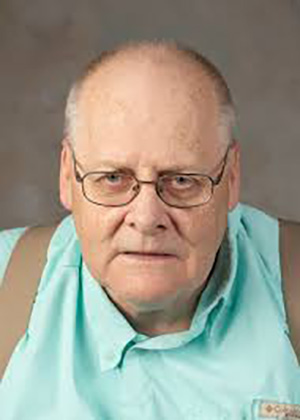By GREG MARKLEY
With the death of former Chair of the Joint Chiefs Gen. Colin Powell in October, I was reminded of the amazing durability of Dick Cheney, the secretary of defense working alongside Powell in the 1991 Gulf War. Cheney had heart attacks in 1978 (at age 37), 1984, 1988, 2000 and 2010. Beyond that, the former U.S. vice president has been in the hospital on and off for coronary heart disease procedures and surgery.
In March 2012, he received a heart transplant after a seven-hour surgery. His cardiologist of 35 years was asked how long an elderly man could survive after heart work such as Cheney’s.
“I told him it would not be unreasonable for an otherwise healthy 71-year old man to expect to live another 10 years”, Cheney’s lead cardiologist, Dr. Jonathan Reiner told New York Times.
Reiner’s estimate means Cheney probably would face a serious decline at or within five months (in March 2022). Because of his cheerleading for the fraught Iraq War and enhanced interrogations (i.e. torture), Cheney is not a sympathetic figure to many Americans.
But he often told people as vice president and beyond that if you feel like you have pains matching symptoms of a heart attack, “As fast as you can” get medical treatment. That is a big factor for his long survival, Cheney and Reiner note in their book, Heart (2013).
“(Not reacting to pains) happens because some may think that their symptoms aren’t bad enough; that having a friend drive you is faster than going by ambulance; that Emergency personnel won’t respond fast enough; that having an ambulance show up at home or work is embarrassing, especially if it’s a false alarm; An ambulance and medical care are too expensive,” according to a National Institutes of Health manual. Simply, your life depends on quick action.
Perhaps only a politics wonk like me would remember Cheney’s advice when apparently having a heart attack. But, as I was having increasingly strong chest pains last February at an Opelika restaurant, I kept thinking of Cheney and my wife and a bunch of people who always say that getting quality treatment quick is preeminent.
It is not recommended that you, especially, or anyone drive you there except an ambulance or EMT rescuers. But we were less than a mile from EAMC (now East Alabama Health) so we went there by car. It turned out I didn’t have a heart attack until later that day. It sure is great if you are going to have a heart attack, to do so in a hospital with its highly trained medics, nurses and doctors. Add in the latest technology and your chances of recovery are great.
I ended up having triple bypass surgery, which was successful and I was back to “normal” in four months. I plan to write about my surgery and recovery next February, on the first anniversary of my big operation. By then I can report on how the year has made my life better.
The authoritative Mayo Clinic lists heart attack signs and symptoms as including: pressure, tightness, pain or a squeezing or aching sensation in your chest or arms that may spread to your neck, jaw or back; nausea, indigestion, heartburn or abdominal pain; shortness of breath; cold sweat; fatigue; lightheadedness or sudden dizziness.
“In 1978, when Cheney suffered his first heart attack, he received essentially the same treatment President Eisenhower had had in 1955,” says a note from publisher Scribner. “Since then, cardiac medicine has been revolutionized, and Cheney has benefitted from nearly every medical breakthrough. At each juncture, when Cheney faced a new health challenge, the technology was one step ahead of his disease. Cheney’s story is in many ways the story of the evolution of modern cardiac care.”
In 2008, ABC News correspondent Martha Raddatz said to the Veep: “Two thirds of Americans say it’s not worth fighting, and they’re thinking about the cost to American lives and (what is) the gain, and the Iraqi lives.” Cheney said “So,” which seemed callous to many viewers, Raddatz responded: “So you don’t care what the American people think!” He replied, “We cannot be blown off course by the fluctuations of public opinion polls.”
A Gallup poll in March 2009 reported that Cheney, two months after leaving office, had a dismal 63% disapproval rating. He is widely regarded as the most powerful vice president ever. Yet history should not forget he was admired for his work stamina with heart problems that would sideline most people.
He counseled to don’t just say “So” as he had on TV about the unpopularity of the Iraq War. Instead, seek medical help when you are having a health crisis. I recalled him empathizing that when I had chest pains myself. (Cheney is still with us, with his heart circa 2012.)
Greg Markley first moved to Lee County in 1996. He has Masters’ in education and history. He taught politics as an adjunct in Georgia and Alabama. An award-winning writer in the Army and civilian life, he has contributed to the Observer for 12 years. gm.markley@charter.net

